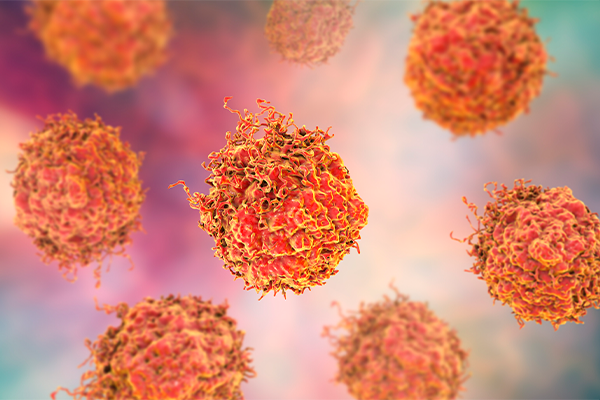
One in seven men are diagnosed with prostate cancer during their lifetimes. For those who aren't cured by surgery or radiation, treatments that suppress the male hormone androgen can temporarily stop the disease from progressing. But at some point, hormone-based treatments stop working for most men.

A new finding from a team led by Jiaoti Huang, MD, PhD, chair of the Department of Pathology in Duke University School of Medicine, points to a new avenue for developing a therapy that could help, without causing unwanted side effects.
Approximately 1% of prostate cancer cells don't have receptors for androgen, so hormone-blocking treatments don't kill them, Huang said. His previous work has shown that these cells, called neuroendocrine cells, become more numerous and play a large role when prostate cancers become resistant to hormonal therapy.

Working in Huang's lab, PhD candidate William Butler discovered that a particular protein, called glypican-3, is expressed on the surface of neuroendocrine cells and is critical to their function. The new study, published online in the Journal of Pathology, is the first to identify this protein in prostate cancer, though it has been seen before in liver cancer, Huang said.
Glypican-3 is an "oncofetal" protein, which means that the protein is expressed before birth, but in adults, the protein is turned off, Huang said. So the protein is not expressed in normal cells.
"That gives us a much better opportunity to target these neuroendocrine prostate cancer cells without having to worry about side effects," he said.

Duke medical oncologist Andrew Armstrong, MD, is a longtime collaborator of the Huang lab who specializes in the treatment of advanced prostate cancer. He believes the work is a potential game changer. “We need novel therapeutic modalities to target cells that are intrinsically resistant to hormonal therapy," said Armstrong, professor of medicine. "This research brings us a step closer to that reality, which has the potential to benefit many patients who are out of treatment options.”
The study involved multiple collaborators, including Armstrong. Other authors from Duke University School of Medicine are Lingfan Xu, MD; Qing Cheng, PhD; Spencer Hauck, PhD; Yiping He, PhD; graduates student Robert Marek; Zachary Hartman, PhD; Mu-En Wang, PhD; Ming Chen, PhD; and associate in research Hong Zhang. Other authors are Qing Yang, PhD, from Duke University School of Nursing; Yinglu Zhou, MS, of Dana-Farber Cancer Institute; and Liang Cheng, MD, of Brown University.
To take the finding further, Huang's team is collaborating with a company, CDI Laboratories, that has created antibodies that bind to glypican-3. Next the researchers will choose an antibody with the right properties to combine with a toxic drug, to create a therapy that would seek out and kill resistant neuroendocrine cells in prostate cancer.
Once an effective "antibody-drug conjugate" is in hand, Huang's lab will test it for effectiveness in cancer cell lines and in animal models. The company's motivations are more than just financial, Huang said. "It turns out our key collaborator in the company is a prostate cancer survivor who just wants to support promising research."
Huang has spent 20 years studying different strategies for targeting neuroendocrine cells to improve prostate cancer treatment. Unlike other prostate cancer cells, neuroendocrine cells look like neurons, Huang said, in that they have long extensions that help them send and receive signals. "They tend to make connections with other cells," he said. "We believe they form an environment that helps the other cancer cells grow."